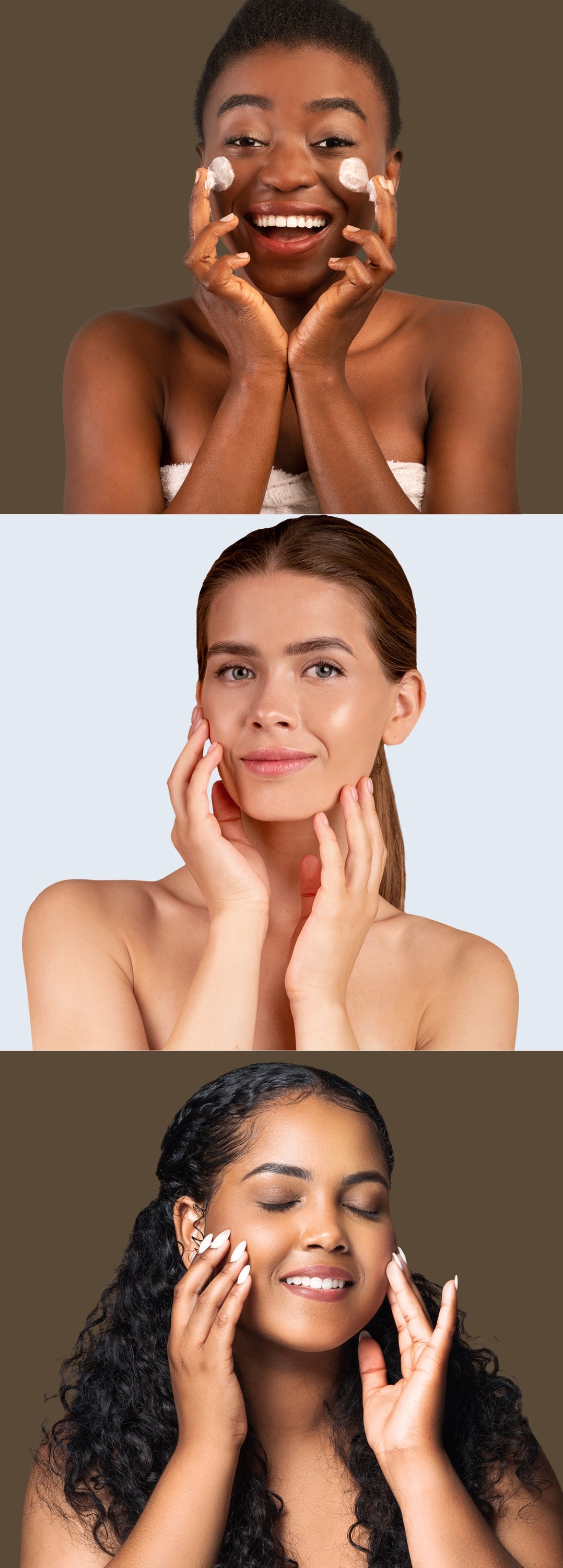
Benefits of CBD for Skin
What is Cannabidiol (CBD)?
Cannabidiol (CBD) is a non-intoxicating compound found in hemp and marijuana plants. Unlike THC, it does not produce a "high," making it a safe and appealing ingredient for skincare. CBD interacts with the body’s endocannabinoid system (ECS), which plays a role in regulating various physiological processes, including skin health.
Skin Conditions
CBD’s anti-inflammatory properties make it effective for managing chronic skin conditions:
Acne: CBD helps regulate sebum production, a key factor in acne development. A 2014 study published in The Journal of Clinical Investigation found that CBD suppressed sebaceous gland activity and exhibited anti-inflammatory effects on acne-prone skin.
Eczema and Psoriasis: A 2019 review in Clinical Therapeutics highlighted CBD’s ability to reduce inflammation and itching associated with eczema and psoriasis, offering relief without the side effects of steroid creams.
Rosacea: CBD can minimize redness and swelling due to its ability to modulate inflammatory cytokines.
Dry Skin
CBD is rich in fatty acids, including omega-3 and omega-6, which support the skin’s natural barrier and lock in moisture. It also promotes the production of ceramides, essential for hydrated, healthy skin.
Aging
CBD’s antioxidant properties combat free radicals, molecules that contribute to signs of aging such as wrinkles, sagging, and dullness. A study in Antioxidants (2020) demonstrated CBD’s potential to neutralize oxidative stress, a major factor in skin aging.
Acne
In addition to regulating sebum production, CBD’s anti-inflammatory effects help calm the skin and reduce the appearance of acne lesions. Its antibacterial properties may also help reduce acne-causing bacteria.
Wound Healing
CBD promotes cell regeneration and reduces inflammation in wounds. Research in Future Science OA (2021) indicated that CBD could accelerate wound closure and reduce scarring, making it beneficial for post-acne marks and other skin injuries.
Blood Circulation
Improved blood circulation from topical CBD application can enhance oxygen and nutrient delivery to skin cells, promoting a healthier complexion and a radiant glow.
How CBD is Formulated in Skincare
CBD is often mixed with carrier oils like olive, hemp, or coconut oil, which not only improve its absorption into the skin but also provide additional hydration and nourishment.
Common Applications
Elixirs and Serums: CBD-infused serums can target specific concerns like redness, irritation, or fine lines while soothing the skin.
Correctors: CBD is often included in spot treatments for its anti-inflammatory and antibacterial properties.
Moisturizers: Adding CBD to moisturizers helps hydrate and calm the skin, making it suitable for sensitive skin types.
Anti-Aging Serums: These serums harness CBD’s antioxidant and anti-inflammatory benefits to support skin repair and reduce visible signs of aging.
Cleansing Masks: CBD in masks helps draw out impurities, condition the skin, and enhance its overall texture.
CBD and Enhanced Skincare
When incorporated into a regular skincare routine, CBD’s benefits can be amplified by complementary ingredients like hyaluronic acid for hydration, niacinamide for redness, or vitamin C for brightness.
Studies continue to explore CBD’s full potential, but its effectiveness in reducing inflammation, promoting hydration, and supporting overall skin health has already made it a sought-after ingredient in modern skincare.
